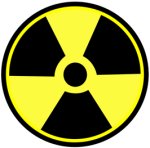The Fukushima nuclear power station crisis in Japan, now designated a level 7 incident – on par with Chernobyl, continues to make itself felt around the world, with many nations reconsidering their pursuit of nuclear power sourced electricity generation.
According to a report on the Wall Street Journal, a draft plan from Germany’s environment and economy ministries proposes to speed up the shift from nuclear power to renewable energy and increased energy efficiency. The draft plan outlines a 5 billion euro initiative to boost offshore wind power. Under the program, areas for new wind farms would be designated, an electricity highway would bring wind generated electricity from the north to the south and wind turbines in existing facilities would be upgraded.
While Germany has a reputation as being a solar power leader thanks to its pioneering in solar feed in tariffs, the country also has a substantial nuclear energy industry. Subsidised by Germany’s taxpayers to the tune of billions each year, the Fukushima crisis represented a tipping point for the nation’s tolerance of nuclear’s radiation risks, spurring hundreds of thousands of German citizens to take to the streets protesting against nuclear energy.
The fallout from the Japan incident has been such that in the German state of Baden-Wuerttemberg, the conservative party was ousted after 58 years of rule as a direct result of the nuclear crisis, with a Green led alliance gaining a majority of votes.
Germany has already shut down 7 of its own nuclear reactors and the remainder will be subject to a safety review by the independent Reactor Safety Commission.
According to Germany’s Federal Ministry of Economics and Technology, the nation’s energy mix in 2010 consisted of the following:
Mineral oil – 33.7%
Hard coal- 12.1%
Brown coal 10.8%
Natural and petroleum gas – 21.8%
Nuclear power 10.8%
Hydro, wind and solar – 1.5%
Other renewables – 7.9%
Other sources -1.9 %
Germany’s energy sector is one of the biggest in the world and the nation is also one of Europe’s largest consumers of electricity.












































